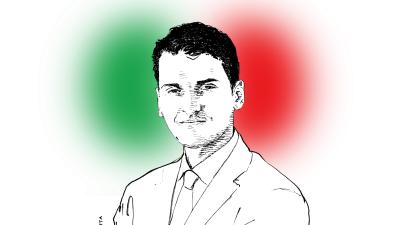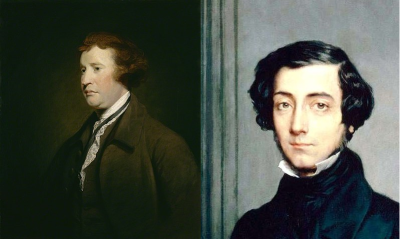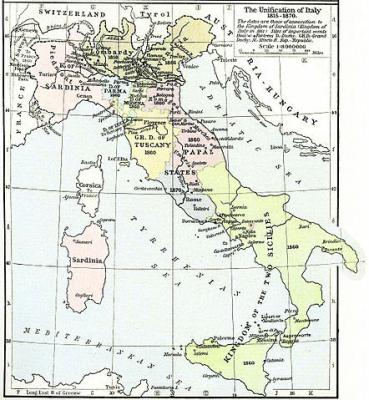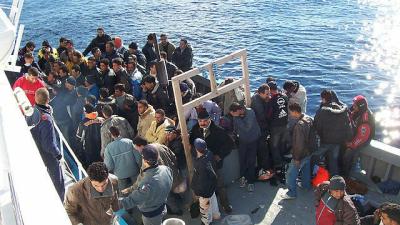The protests that have shaken France in recent days have their roots in decades of flawed social and cultural policies that need to be investigated in order to understand how such a potentially explosive situation came about. We spoke about this with Marie d'Armagnac, a French journalist and author of Matteo Salvini, l'indiscipliné, and of the preface to the French edition of Giorgia Meloni's autobiography, Mon itinéraire.
Francesco Giubilei: Do the much-talked-about clashes that have occurred recently in Paris have an origin in the past? If so, what did it all start from and how did it get to this point?
Marie d’Armagnac: We started from afar. It all originates with France's migration policy, which is very bad. In France, ius soli is applied. Every year, 200,000 migrants arrive in France, obtain French nationality and have their families join them, all legally. When a child has French nationality, the parents can obtain it too. Ghettos have emerged everywhere. But an especially worrying issue are small towns, for this means immigration is a general problem. There are two populations living not together but side by side, and there is no longer any unity of the nation.
What role does immigration play in this context? Do you think it there are problems with unity caused by immigration?
Integration is no longer possible, for there are too many immigrants. This situation outlines the failure of multiculturalism that has worked badly in France for 20/30 years and of a very strong left-wing cultural hegemony, under which all the dogmas of multiculturalism cannot be questioned. This is a heavy responsibility because integration was not presented as a model at all. Diversity was a more important value than integration. For years, politicians and the media have offered immigrants a negative description of France, sowing hatred in their minds. So they have never learned to love France, despite the fact that France, thanks to its welfare and social system, makes everything available to them.
The focus is on the new generation: why do these seem to be more radical than the previous ones?
Everything stems from the roots of national education. The French public school has done nothing to explain the values of France to young immigrants, and their parents and the family in general are absent. The migrants see France as something they can exploit without giving anything back; they hate France. There is a constantly growing number of migrants who arrive and create a parallel society that has nothing to do with our values. This is how these kids have grown up. There is also a problem with justice: when they are arrested, many of them are released after a short time. Hundreds of boys who have been arrested these days will be out tomorrow and will not serve any time: they are aware of this and go back to behaving in the same way. The 17-year-old boy who was killed by a policeman had 15 convictions against him.
These demonstrations are reminiscent of what happened in 2005 - and what followed from those events. So what has happened in the meantime?
The number of protesters has increased, and a feeling of impunity has been generated in those whose protests have never been condemned. They are increasingly numerous, violent and devoid of the any civilised feelings. Over the last 15 to 20 years, such behaviour has led to a state of degradation. The rioters are children of the acts of 2005. In 2005 the riots were in the banlieues, but now they have spread to the city centre and bourgeois areas - the same bourgeoisie that voted for Macron.
In your opinion, what caused these tensions to occur in France and not in Germany, for example?
The hatred of France for colonialism. France has always been very weak, unlike the hatred, which is very strong. The strength of the state is weak, the French model is collapsing, the government tries to influence the social network and the figures, the situation is very serious. In Italy, 72,000 arrivals have been recorded since January: those numbers continue to grow, so in the coming years analogous situations may also occur in Italy.
In this regard, do you think there are any solutions that can be implemented so that events like these do not happen again?
Making sure that the judiciary system does its job, that the sentences to be served are respected, that there is no easy return to freedom. The worst thing is to still give billions to the banlieues: they have schools, libraries, incredible facilities. They are violent and they have weapons. One solution would be to reform the nationality code. So many have dual nationality. In this regard, the Algerian government has declared: ‘The French must defend our Algerian compatriots.’ I say: then take them all back.
Read also
The centre-right wins in Lazio and Lombardy and strengthens the government
On 12-13 February 2023, votes were cast in Lombardy and Lazio, two of the main Italian regions where the cities of Milan and Rome are located. Lombardy is one of Europe's most important economic regions with 10 million inhabitants and a gross domestic product higher than many European states.
Francesco Giubilei
Conservatives and Classical Liberals - What to Choose?
In a political and cultural context as changeable as the contemporary one, any use of rigid categories to define parties and alignments or thinkers and men of culture can be misleading.
Francesco Giubilei
The Italian nation after the Unification of Italy
The terms nation and state, sometimes erroneously used as synonyms in public debate, actually represent two different concepts. It is precisely from this distinction that we must start if we wish to define the genesis and cultural references that constitute the Italian philosophical tradition.
Francesco Giubilei
"Never so many immigrants!" Italy's cry for help
A flow of immigrants never seen before. Every day, hundreds and hundreds of arrivals on Italian coasts are bringing reception workers to their knees.














Comments (0)